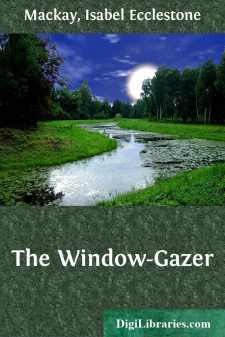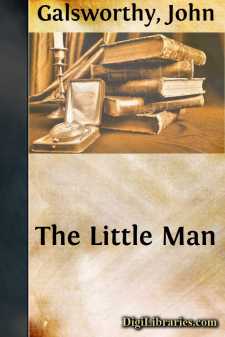Categories
- Antiques & Collectibles 13
- Architecture 36
- Art 48
- Bibles 22
- Biography & Autobiography 813
- Body, Mind & Spirit 142
- Business & Economics 28
- Children's Books 17
- Children's Fiction 14
- Computers 4
- Cooking 94
- Crafts & Hobbies 4
- Drama 346
- Education 46
- Family & Relationships 57
- Fiction 11829
- Games 19
- Gardening 17
- Health & Fitness 34
- History 1377
- House & Home 1
- Humor 147
- Juvenile Fiction 1873
- Juvenile Nonfiction 202
- Language Arts & Disciplines 88
- Law 16
- Literary Collections 686
- Literary Criticism 179
- Mathematics 13
- Medical 41
- Music 40
- Nature 179
- Non-Classifiable 1768
- Performing Arts 7
- Periodicals 1453
- Philosophy 64
- Photography 2
- Poetry 896
- Political Science 203
- Psychology 42
- Reference 154
- Religion 513
- Science 126
- Self-Help 84
- Social Science 81
- Sports & Recreation 34
- Study Aids 3
- Technology & Engineering 59
- Transportation 23
- Travel 463
- True Crime 29
Sort by:
THE LAW OF THE YUKONThisis the law of the Yukon, and ever she makes it plain:"Send not your foolish and feeble; send me your strong and your sane.Strong for the red rage of battle; sane, for I harry them sore;Send me men girt for the combat, men who are grit to the core;Swift as the panther in triumph, fierce as the bear in defeat,Sired of a bulldog parent, steeled in the furnace heat.Send me the...
more...
by:
George Gissing
CHAPTER I This is the third day of sirocco, heavy-clouded, sunless. All the colour has gone out of Naples; the streets are dusty and stifling. I long for the mountains and the sea. To-morrow I shall leave by the Messina boat, which calls at Paola. It is now more than a twelvemonth since I began to think of Paola, and an image of the place has grown in my mind. I picture a little marina; a yellowish...
more...
by:
Upton Sinclair
The scenes of the Play-play change with each act. For Act I the set is a drawing-room in a wealthy old New York home, entrances Right-center and Left. Both front and rear scenes are lighted by many small lights, which can be turned off a few at a time, so that one scene or the other fades slowly. When the Real-play is in full light, the Play-play is dark and invisible. When the front scene is entirely...
more...
by:
Bernard Shaw
ANNAJANSKA is frankly a bravura piece. The modern variety theatre demands for its "turns" little plays called sketches, to last twenty minutes or so, and to enable some favorite performer to make a brief but dazzling appearance on some barely passable dramatic pretext. Miss Lillah McCarthy and I, as author and actress, have helped to make one another famous on many serious occasions, from Man...
more...
by:
Mary H. Debenham
CHAPTER I THE AUNTS 'Child, be mother to this child.'—E. B. BROWNING. t was seven o'clock on an autumn morning nearly a hundred years ago. A misty October morning, when the meadows looked grey with the heavy dew, and the sky was only just beginning to show pale blue through the haze which veiled it. There was a certain little hamlet, just a few cottages clustered together beside a...
more...
CHAPTER I Professor Spence sat upon an upturned keg—and shivered. No one had told him that there might be fog and he had not happened to think of it for himself. Still, fog in a coast city at that time of the year was not an unreasonable happening and the professor was a reasonable man. It wasn't the fog he blamed so much as the swiftness of its arrival. Fifteen minutes ago the world had been an...
more...
by:
John Galsworthy
SCENE I Afternoon, on the departure platform of an Austrian railwaystation. At several little tables outside the buffet personsare taking refreshment, served by a pale young waiter. On aseat against the wall of the buffet a woman of lowly station issitting beside two large bundles, on one of which she has placedher baby, swathed in a black shawl. WAITER. [Approaching a table whereat sit an English...
more...
PROEMMother of Rome, delight of Gods and men,Dear Venus that beneath the gliding starsMakest to teem the many-voyaged mainAnd fruitful lands—for all of living thingsThrough thee alone are evermore conceived,Through thee are risen to visit the great sun—Before thee, Goddess, and thy coming on,Flee stormy wind and massy cloud away,For thee the daedal Earth bears scented flowers,For thee waters of the...
more...
PREFACE. For the last twenty-five years, the writer of this work has employed much of his time in the reading and study of the controversy between Roman Catholics and Protestants. And those who have been subscribers to the paper he has edited and published for the last seventeen years, will bear him witness that he has kept up a fierce and unceasing fire against that dangerous and immoral Corporation,...
more...
Introduction.—The occasion for publishing this catalogue of Philippine earthquakes which were of violent and destructive character has been furnished by a request from Prof. John Milne for a list of such phenomena, to be included in the General Earthquake Catalogue which this eminent seismologist is preparing under the auspices of the British Association for the Advancement of Science. The said...
more...











